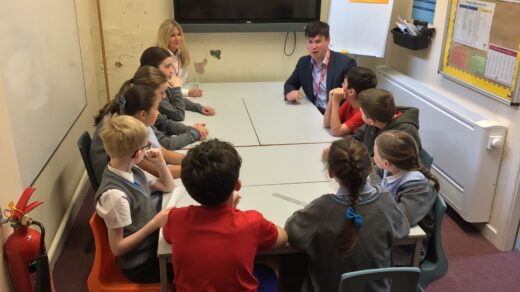Key Takeaways from the 2024 Spring Budget Impacting Education

Chancellor of the Exchequer, Jeremy Hunt, announced the Spring Budget 2024 at the House of Commons.
In the section of his speech about public services, the chancellor stated that the UK are now ahead of Germany, France and Sweden in the OECD’s PISA education rankings for reading and maths.
The chancellor continued that he wants to see ‘more efficient, better value and higher quality public services’, and mentioned education as one of these.
Following this, Jeremy Hunt said the government will invest £105m over the next four years to build 15 new free special schools.
He said that special education need provisions can be excellent when outsourced to independent sector schools but also expensive’, and that the £105m will help create additional high-quality places and increase choice for parents.
Continuing on public services, he said that a 5% increase in public sector productivity would be the equivalent of around £20 billion in extra funding, and today’s plans means this can be delivered.
Commenting on the Spring Budget 2024, Paul Whiteman, general secretary of school leaders’ union NAHT, said: “Last year, the Prime Minister promised that the UK “would rival the best education systems in the world” but yet again, children and schools have been largely ignored in the budget.
“Our children deserve better – the spending announcements mean that too many will continue to be taught in decrepit classrooms for the foreseeable future. School leaders will be concerned to hear the chancellor talking about the need for greater efficiencies in education, and many will be left wondering where they will be found when budgets have already been cut to the bone.
“While the investment in new special schools is welcome, it does not begin to address the huge shortages of specialist staff, capacity and funding for pupils with SEND, either in schools or the wider social care and health services which are already under so much strain.
“Until the fall in teachers’ and leaders’ pay is addressed, and working conditions are improved, the spiralling crisis in teacher recruitment and retention is only set to worsen.
“When the election comes – we will be uncompromising in our ask to all parties to provide funding for our children – to repair the school estate, provide essential services for vulnerable children and recruit and retain enough teachers.”
Regarding the promise of a further 2p reduction to national insurance from April 2024, the Spring Budget said these cuts will mean an average teacher on £44,300 will receive an annual gain of over £1,250.
The budget also promised to commit £75 million over three years, from 2025, to expand the Violence Reduction Unit model across England and Wales, which is to enable local public services such as schools to tackle serious violence among young people, preventing violent crime and ‘reducing burdens on healthcare, schools and criminal justice’.
Daniel Kebede, general secretary of the National Education Union, also spoke on the budget, saying: “Once again, the chancellor has shown that he does not care about the crisis that threatens to paralyse education in this country.
“Jeremy Hunt has done nothing to address the funding crisis in our schools and colleges. He has turned his back on the teacher and support staff recruitment and retention crisis, the record class sizes, the decrepit state of our school buildings.
“In October, the Prime Minister said that education was ‘the best economic policy’ but has not put his money where his mouth is. Jeremy Hunt says he wants a ‘high skills, high wage’ economy, but has failed to invest more in education to deliver what he says the country needs.
“The inescapable fact is that 70% of schools have less funding in real terms than in 2010. And today, Jeremy Hunt’s message is that he wants them to just keep doing more and more with less and less. And it’s just not sustainable.
“Even after the investment of £105 million for special free schools, the chancellor plans to cut capital investment in education from £6.3 billion pounds this year to £6.1 billion pounds next year.”
As part of the budget, the chancellor announced there would be a six month extension of the £800m Household Support Fund to support the poorest families. He also said that the High Income Child Benefit Charge will be raised from £50,000 to £60,000.
Responding to this, Mark Russell, chief executive at charity The Children’s Society, said: “This budget was an opportunity to lay down a marker for a compassionate, forward-thinking society that values the wellbeing of every child.







